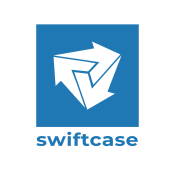Crowdsourcing is an organisational model in which a single person or
business obtains access to goods and services, including ideas and
money, from a large, open and often rapidly-changing group of people,
usually via the internet. By dividing work between disparate
participants, significant results can be achieved.
Many businesses would probably not consider crowdsourcing a viable
option, yet if implemented correctly, it can be beneficial for a number
of reasons.
Crowdfunding
Crowdfunding is probably the most known form of crowdsourcing, which
involves raising funds through the public via websites such as,
Kickstarter or Indiegogo, instead of investors. The business receives
funds and backers of the project receive specific rewards depending on
how much they invested.
Competitions
Crowd contests get the public involved by challenging them to complete a
particular task, such as designing a logo, writing a blog or coming up
with a company name, users typically are then rewarded in return.
In recent years, there have been many successful crowdsourcing
campaigns, one of them being Lego. Lego allows users to submit their
product designs through their website, which are then voted for by other
users. The idea with the most votes gets created, and the creator
receives 1% royalty of the revenue. This way of crowdsourcing is
beneficial to both users and Lego themselves. Users are rewarded for
their ideas, while at the same time excitement is generated within the
fanbase and Lego receive a product idea that they know already has
demand within the community.
Sole support
Some businesses have taken this a step further by using crowdsourcing as
their primary business feature. An example of this is the mobile
application Waze. Waze is a GPS, maps, and traffic navigation mobile
application that relies on the community to provide real-time data, such
as accidents, road hazards, traffic jams, etc. This data then gets
relayed to all users in the vicinity. This technology allows Waze to
provide their users with genuinely useful information and distinguishes
themselves as a maps application from their competitors.
Downsides
That said, with anything, if the necessary steps are not planned out,
then it could backfire and negatively impact the business. One of the
most famous crowdsourcing mishaps in recent years was by the National
Environmental Research Council (NERC). In 2016, NERC conducted an
internet poll to decide the name of their new £200 million polar
research vessel. The name that received the most votes was “RRS Boaty
McBoatface.” Unfortunately, NERC was not impressed by the results and
decided to choose the fifth place “RRS Sir David Attenborough” as the
winner, while the name Boaty McBoatface was given to the ship’s high
tech remotely operated sub-sea vehicle instead.
Whether crowdfunding is a viable organisational method for your business
is down to the goals you are looking to achieve, and what resources are
currently at hand. It’s certainly something worth considering if the
circumstances are right.
SwiftCase is a powerful, cloud-based business process management platform, get in touch with us today, for a free, no-obligation demonstration.
